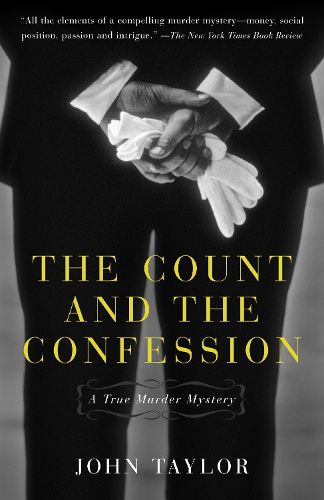Readings Newsletter
Become a Readings Member to make your shopping experience even easier.
Sign in or sign up for free!
You’re not far away from qualifying for FREE standard shipping within Australia
You’ve qualified for FREE standard shipping within Australia
The cart is loading…






Roger de la Burde was an unusual and charming man-a wealthy scientist and art collector, he claimed to be a Polish Count, wore ascots, and always bowed to women. But after he was found dead in the library of his Virginia estate, police discovered that de la Burde was not the man he had pretended to be. In fact, he was such a womanizing swindler that they had no difficulty compiling a list of suspects, including the tobacco company he was suing, his disgruntled business associates, his longtime girlfriend, his pregnant mistress, and her husband.
The woman they ultimately charged with the crime seemed the least likely of them all to commit murder; Beverly Monroe was an educated and unfailingly genteel Southern mother of three who had never had so much as parking ticket. But she had been de la Burde’s lover for twelve years (despite his frequent affairs) and she made a bizarre confession under intense police questioning. Was she really guilty, or was she manipulated by the police? With unimpeachable research, Taylor reveals the multiple layers of this fascinating case and leaves readers with troubling doubts about de la Burde, about Monroe, and about the justice system in America.
$9.00 standard shipping within Australia
FREE standard shipping within Australia for orders over $100.00
Express & International shipping calculated at checkout
Roger de la Burde was an unusual and charming man-a wealthy scientist and art collector, he claimed to be a Polish Count, wore ascots, and always bowed to women. But after he was found dead in the library of his Virginia estate, police discovered that de la Burde was not the man he had pretended to be. In fact, he was such a womanizing swindler that they had no difficulty compiling a list of suspects, including the tobacco company he was suing, his disgruntled business associates, his longtime girlfriend, his pregnant mistress, and her husband.
The woman they ultimately charged with the crime seemed the least likely of them all to commit murder; Beverly Monroe was an educated and unfailingly genteel Southern mother of three who had never had so much as parking ticket. But she had been de la Burde’s lover for twelve years (despite his frequent affairs) and she made a bizarre confession under intense police questioning. Was she really guilty, or was she manipulated by the police? With unimpeachable research, Taylor reveals the multiple layers of this fascinating case and leaves readers with troubling doubts about de la Burde, about Monroe, and about the justice system in America.